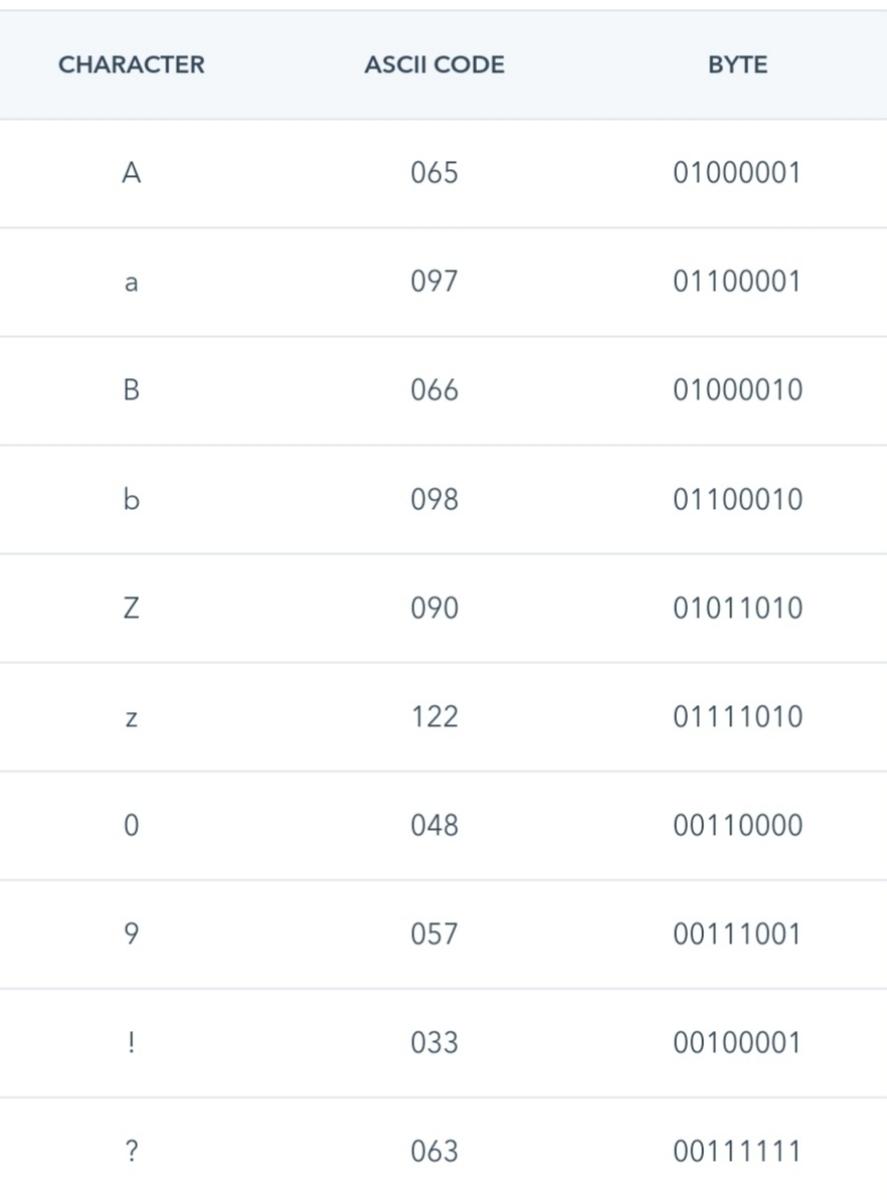ASCII: Converting Symbols to Binary
The American Standard Code for Information Interchange (ASCII) was an early standardized encoding system for text.
ASCII’s library includes every upper-case and lower-case letter in the Latin alphabet, every digit from 0 to 9, and some symbols (like /, !, and ?). It assigns each of these characters a unique three-digit code and a unique byte.
But ASCII is so limited, it gives us 256 different bytes, or 256 ways to represent a character. When ASCII was introduced in 1960, this was okay, since developers needed only 128 bytes to represent all the English characters and symbols they needed.
7
70 reads
The idea is part of this collection:
Learn more about computerscience with this collection
Understanding machine learning models
Improving data analysis and decision-making
How Google uses logic in machine learning
Related collections
Read & Learn
20x Faster
without
deepstash
with
deepstash
with
deepstash
Personalized microlearning
—
100+ Learning Journeys
—
Access to 200,000+ ideas
—
Access to the mobile app
—
Unlimited idea saving
—
—
Unlimited history
—
—
Unlimited listening to ideas
—
—
Downloading & offline access
—
—
Supercharge your mind with one idea per day
Enter your email and spend 1 minute every day to learn something new.
I agree to receive email updates
